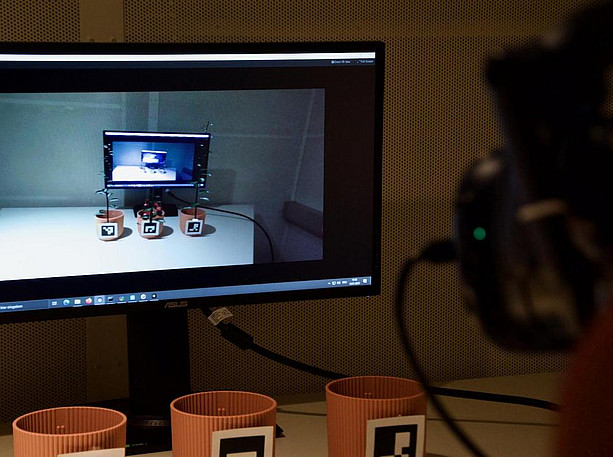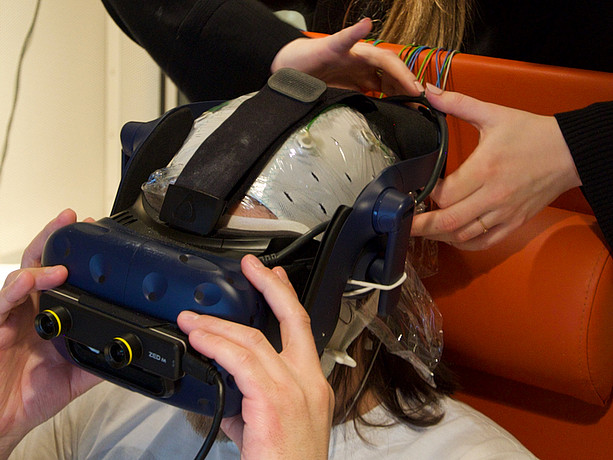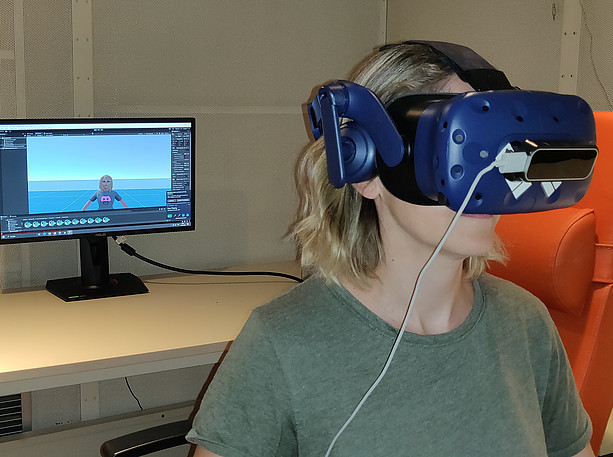Virtual reality research
Main research areas
VR glasses allow users to immerse themselves in immersive, three-dimensional worlds and offer researchers new ways of collecting data and designing study conditions. With VR, scientists can place study participants in controlled yet realistic environments and record their cognitive and neuro-physiological reactions in real time. A central point in VR research is the so-called presence experience, i.e. how strongly one feels present in the VR environment. The experience of presence is related to how realistically you perceive VR and whether you behave in the virtual world in a similar or the same way as in the real world. Studies of our research group deal with neuronal correlates of the experience of presence, how to objectively measure the experience of presence and how to increase the experience of presence in VR. Furthermore, one of our research focuses is on the use of VR (and also AR - Augmented Reality) in rehabilitation, e.g. for training spatial orientation disorders or as a feedback system in neurofeedback applications. VR systems are relatively inexpensive and could also enable home-based training and therapy in the future. However, research is still needed into how VR-supported therapy is accepted, for example, whether the effects are comparable to therapy in person and what impact interaction with virtual therapists has. We want to continue to focus on these questions.
Links to selected publications
Berger et al. (2022)
Kober et al. (2022)
Kogler, Wood & Kober (2021)
Kober et al. (2013)


